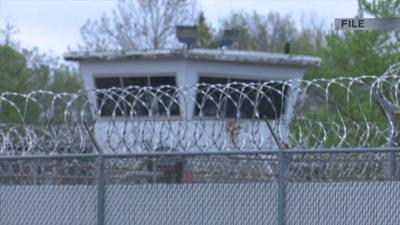
MARION, Ill. (WSIL) -- A group of lawmakers and law enforcement held a panel Wednesday morning to discuss a crucial element of the SAFE-T Act: eliminating cash bail.
At the Pavilion in Marion, the discussion featured Sen. Dale Fowler (R-Harrisburg), Rep. Patrick Windhorst (R-Metropolis), Williamson County State's Attorney Marcy Cascio-Hale, sheriff-elect Jeff Diederich and Marion Police Chief David Fitts.
Diederich says the law ties the hands of law enforcement and makes it harder to prosecute criminals.
"These opportunities to hold people accountable to hold criminals accountable are being removed from the discretion of law enforcement, the states attorney and the judiciary," Diederich said.
Starting January, the act eliminates cash bail which means suspects who are arrested won't have to spend the night in jail. However, a judge can still keep a suspect behind bars, if they decide the suspect poses a threat to safety.
Lake County State's Attorney Eric Rinehart says other states attorneys will have to write a petition to keep suspected criminals in jail and start doing them as soon as they can.
Rinehart says people can still be arrested for misdemeanor crimes such as trespassing.
"They can be arrested if there's not an immediate safety problem but even on the Class B and Class C trespassing people can be arrested if there's a threat to public safety," Rinehart said.
Illinois is the first and only state to pass legislation that eliminates the use of cash bail, something Rinehart says disproportionally impacts low-income offenders.
"Why does someone's ability to get into their 401k mean that they should be free while someone who doesn't have a 401k should not be free?" Rinehart said.
There's a handful of trailer bills aimed at updating the act, including one Sen. Scott Bennett (D-Champaign). Bennett's bill clarifies that the act would apply to those arrested on or after Jan. 1, 2023.
The bill would also allow judges to deny pretrial release for a suspect who poses a threat to safety.
Lawmakers are expected to meet in Springfield November 15. That will kick off a six-day fall veto session. It will give them time to debate any tweaks to the act before New Year's Day.














